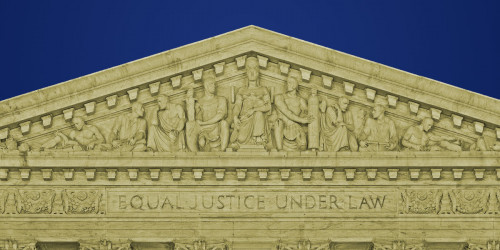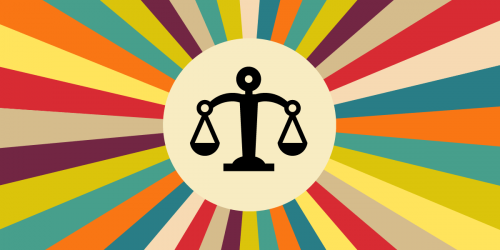As we've noted before, many trademark owners are none too happy when political activists use their marks as part of a larger statement about the owners' business or political practices. Sometimes, that unhappiness takes the form of improper legal threats and even lawsuits designed to silence critical speech. In a ruling issued today, a federal judge called a halt to one such lawsuit, affirming the essential balance between trademark rights and free speech.
The case has its origin in a brief action carried out by members of Youth For Climate Truth (YFCT), a group concerned about climate change. The action targeted Koch Industries, a billion dollar company that has publicly challenged the science behind climate change theories. Borrowing "identity correction" techniques pioneered by groups such as the Yes Men, YFCT issued a press release, purportedly from Koch, in which the company promised to stop funding organizations that deny climate change. The release was posted for a few hours on a website (www.koch-inc.com) that partially imitated Koch Industries' own website. The action received some media coverage, but no press organization thought the release was real. If Koch were sensible, that should have been the end of it.
But Koch was not sensible. It sued YFCT for trademark infringement, cybersquatting, violation of the Computer Fraud and Abuse Act (for allegedly not complying with the terms of service on the real Koch website) and assorted state claims, then issued subpoenas seeking the identities of the YFCT members. With help from lawyers at Public Citizen, YFCT moved to quash the subpoenas and dismiss the case.
Judge Dale Kimball granted the motion and threw the whole thing out. On the trademark claims, the judge noted that YFCT's activities were clearly noncommercial and, therefore, governed by the First Amendment, not state or federal trademark law.
The Lanham Act regulates only economic, not ideological or political, competition . . . “Competition in the marketplace of ideas” is precisely what the First Amendment is designed to protect.
On the cybersquatting claims, the judge found that Koch could not plausibly claim that YFCT intended to profit from the spoof website, given that it was operated anonymously, for a just a few hours, and had no commercial purpose.
As for the CFAA claims, which were based on YFCT's alleged violation of real Koch website's terms of use, the judge rightfully found that using information that Koch made publicly available on its site, with no attempt to prevent access, could not possibly amount to "exceeding authorized access" to a website. Indeed, Koch did not even require visitors to agree to its terms of use.
Koch’s complaint is not that Defendants obtained the information but rather that they ultimately used the information in an unwanted manner. The CFAA addresses only the act of trespassing or breaking into a protected computer system; it does not purport to regulate the various uses to which information may be put.
All in all, a good day for free speech. Hopefully other trademark owners will take heed and learn that the best response to critical speech (including speech that involves "identity correction") is more speech -- not a lawsuit.











